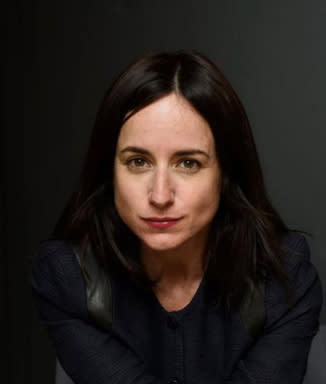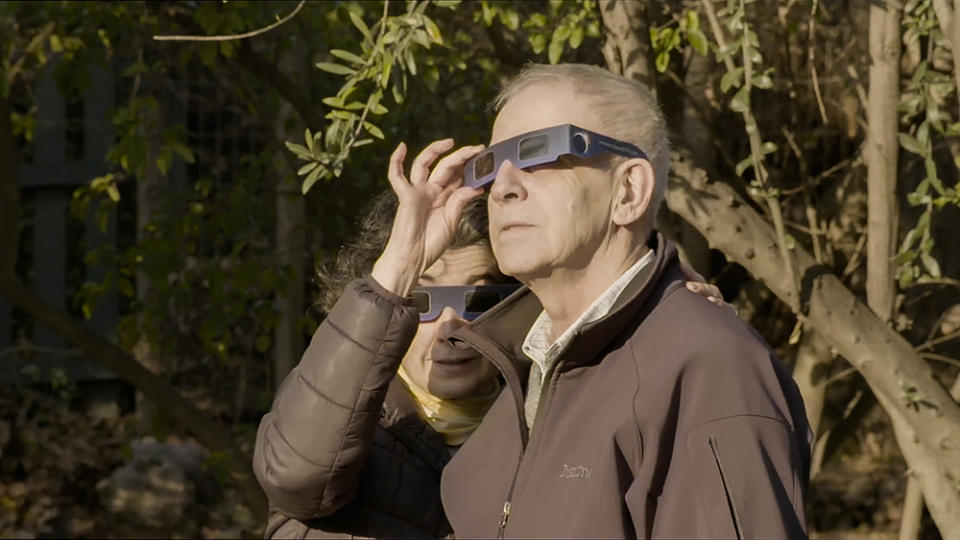‘The Mole Agent’ Director Maite Alberdi Talks Sundance Doc ‘The Eternal Memory’

Providing a masterclass in empathy, Chilean documentarian Maite Alberdi lends a certain whimsy to her works that forage hope amidst roving sadness. She manages to extract each ounce of charm from her subjects and, as in her study of aging and isolation in Oscar-nominated “The Mole Agent,” she continues to showcase a zest for life in the protagonists in her latest feature.
“The Eternal Memory,” her follow-up to “The Mole Agent,” was the subject of double news on Friday, walking off with the World Cinema Grand Jury Prize: Documentary – the section’s top plaudit – just hours after MTV Documentary Films acquired worldwide rights to the doc feature.
More from Variety
follows former Chilean journalist Augusto Góngora and his wife, actress Paulina Urrutia, in their rigorous fight against Augusto’s memory-zapping diagnosis.
Tender and sentimental, scenes oscillate between the torture of a fast-fading history and divine moments of immense love as they navigate the ever-changing landscape of a marriage that pushes the reset button, sometimes by the hour.
In one poignant clip, Augusto’s mind betrays him. Agitation grabs hold, his fret becoming so large it takes the air from the room. Tenderly, Paulina reassures him without trembling with a gentle touch and the cadence of a loving phrase. While often forgetting the particulars, he relies on her, familiar and intent, to calm the waves that his disorder whips into a temperamental frenzy.
Sold globally by Dan and Josh Braun’s New York-based Submarine Entertainment (“Searching For Sugarman”), the film is produced by Alberdi’s documentary production outfit Micromundo (“The Fugitives”) alongside Pablo and Juan De Dios Larraín and Rocío Jadue at acclaimed Chilean production house Fabula, behind “Spencer.”
Amid the project’s bow at Sundance this week, Alberdi spoke with Variety about the duality of an onerous diagnosis, taking an integrative approach to caregiving and the endearing couple at the film’s core.
How do you fight the urge to tell solely the difficult portions of an intense narrative, instead of placing the positive and graceful parts up front?
It would be unfair to life itself if I only showed terrible things, nothing’s lived simply one way. Fiction film genres, where everything fits one format, don’t exist in life. Grief can be accompanied by laughter, people learn to live with their pain. Even in difficult situations, there are good and bad moments.
Often, what you see of my characters in movies is what they provoked in me. In this case, every time I went to film them I wanted to stay with them, be with them. Seeing them was good for me. They were the ones who, even in a vulnerable situation, were able to experience things from a place of happiness, they radiated it. Terrible moments exist but they share space with other moments, and it’s an editing challenge to build that balance of coexistence.
We see a couple who unconditionally love one another and as some might give up, we see Paulina deal with his condition in a highly compassionate fashion. How much of how we deal with illness and change comes from the grace we lend it, handling it with understanding rather than fear?
It’s true that not all caretakers do so with delicacy and kindness. Paulina does it that way, I think, as a result of a good relationship, one which was gentle throughout her whole life, it’s because of the way they’ve always related to one another. Paulina says that the only way to evolve as a society is for everyone to care for another person at some point in their lives.

I think compassion tools are key, but we’ll only have those tools if we see people taking care of other people around us. Compassion will be born from the awareness of the fluidity of our roles and the notion that we could all go through the same. At the same time, we’ll assume it’s a part of life, and not an exception. Vulnerability and fragility are part of existence, we have to normalize it, see it, live with it and understand that there are also spaces of beauty in fragility because there are relationships and affections that will remain and give meaning to those moments.
Do you feel that the traumas and the horrors Augusto witnessed so closely while covering the Pinochet years could play a part in his condition now? Essentially, do you feel that sometimes humans experience trauma so great that their minds will do anything to forget them?
Nietzsche used to say, “Only what does not cease to give pain remains in one’s memory.” Augusto’s body never forgets, the pain remains in the body. Many investigations state that certain knots in memory are never forgotten. I don’t think the horrors he saw are to blame for his condition, but I do think there are some sorrows you can never forget, and you see that in him. I think “The Eternal Memory” focuses on what remains in the body, that historical pain and love, which is there until the end. A body that remembers pain and love, an identity that’s still there, and knows the role of his books, of his home.
Some of the most touching scenes were those where Augusto accompanied Paulina as she performed theater. It seems he adores the art in life, theater, literature. How do you feel that keeping active in this way might be the key to enjoying the process even when the mind and the body can’t fully keep up?
Those are some of my favorite scenes too, because they relate to the film’s point of view regarding the issue of care. Paulina is a caretaker who chooses to integrate him into her life, takes him to plays, and takes him to everything she does at work and in her social life, dance and parties. Since his diagnosis, he began to live her life. “Their soul,” he says in the film, and Paulina says they became the same person. Her decision to include him meant that he didn’t get worse as quickly as he could have, and it’s an example that it’s everyone’s job to care.
In the play scene, all the actors are also taking care of him, because they’re including him. And that’s how it must be, we must integrate and not isolate. Patients and caregivers should be able to continue their lives as naturally as possible. Otherwise, caregivers risk isolating themselves. Socially, we all have to integrate, even if it means walking at a different pace, perhaps everything slows down.
Augusto got worse during the pandemic, he’d remained stable and connected before that. The quarantine, which was very long in Chile, led him to lock himself up for about a year. In a matter of months, he deteriorated because he wasn’t going to therapy and, most importantly, had almost no social life. So it’s a clear example of how a person like Augusto, who was totally integrated, loses sociability and deteriorates. This is a message of the importance of including dependent people in daily life, even if it breaks work and social protocols.

Best of Variety
Sign up for Variety’s Newsletter. For the latest news, follow us on Facebook, Twitter, and Instagram.

 Yahoo News
Yahoo News 
